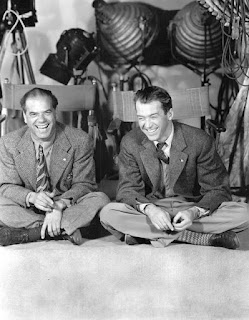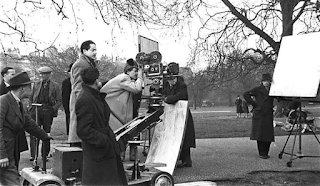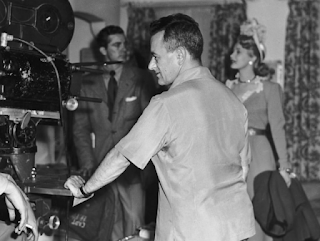The 1946 Best Director lineup is made up of two first-timers...and three sixth-timers! There's Clarence Brown, who this year officially became the record-holder in this category for Most Nominations Without A Win. There's Frank Capra, whose five previous nods resulted in three wins! And there's William Wyler, who won his first Oscar four years previously, his third 13 years later, and his second...well, this was his second!
Do we agree with that win? Should it have gone to one of the other sixth-timers? Or another nominee entirely? Let's talk...
Clarence Brown for The Yearling
***
sixth and final nomination
What could have been a pleasant but languid film is instead captivating, thanks to Brown's work with the actors (not a bad performance in the bunch!), his integration of previously-shot footage from two years before (production went through some issues), and his appreciation for the majesty of nature: there's something divine about the wildlife amid the fiery sunsets, Brown knows it, his team knows it, and they manage to capture that indescribable feeling on film.
Frank Capra for It's a Wonderful Life
****
past three-time winner, sixth and final nomination; Golden Globe winner for Best Director; NYFCC Awards second runner-up for Best Director
It's a dangerously mawkish, sometimes hokey screenplay, but it works. Capra has grounded all that sentimentality in real personalities. Bedford Falls doesn't just look like a real town, it feels like a real community of longtime friends and neighbors. When he pushes in for a closeup, it's intimate (that prayer!). When he turns everything down so you can hear a whispered confession, you get goosebumps ("George Bailey, I'll love you til the day I die"). Whatever tears he wrings - and for this viewer, there were many - are earned.
David Lean for Brief Encounter
*****
Visualizes getting lost in a memory: Celia Johnson sitting in a chair while the parlor around her suddenly becomes the railway station tea room where she first meets Trevor Howard. Other times, Johnson can only be glimpsed in back, the focus on the conversations among the tearoom employees - like she's hearing them, forcing herself to focus on them, even as her mind is elsewhere. Then, outside, his blocking and use of shadow convey not just the clandestine nature of the relationship, but the characters' timid desire for each other. And those performances!
Robert Siodmak for The Killers
**
first and only nomination
Was surprised to feel about this as I do his work in The Spiral Staircase: some really thrilling sequences, overall not consistently exciting...or interesting. Ah, but when he's on: the single-take heist scene is a big one, of course, but the first scene is the best, every performance, cut, and camera angle executed perfectly for maximum dread.
William Wyler for The Best Years of Our Lives
*****
past winner, sixth of twelve nominations for directing; National Board of Review's Best Director of 1946; NYFCC Awards winner for Best Director
There are so many things that could have been too much, from performances to runtime (2hr50min!), but Wyler...gosh, he's just so good! And not just with the performers, but also the inventiveness of the visuals, the constant play of ensemble members together, overlapping in deeds and dialogue. Throughout, there's a discernible empathy for his players, a genuine concern for the men coming home - you feel it through the screen. Who else but Wyler can achieve that?
--------------------------
No suspense here, my winner is also:
WILLIAM WYLER
for
THE BEST YEARS OF OUR LIVES
Tomorrow, I swear, the nominees for Best Original Song: Blue Skies ("You Keep Coming Back Like a Song"), Canyon Passage ("Ole Buttermilk Sky"), Centennial Summer ("All Through the Day"), The Dolly Sisters ("I Can't Begin to Tell You"), and The Harvey Girls ("On the Atchison, Topeka and the Sante Fe").








No comments:
Post a Comment